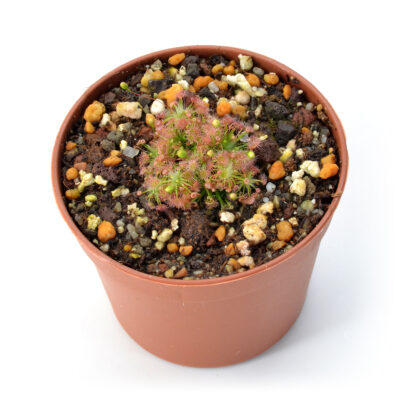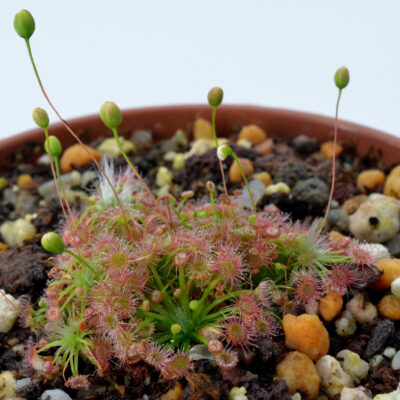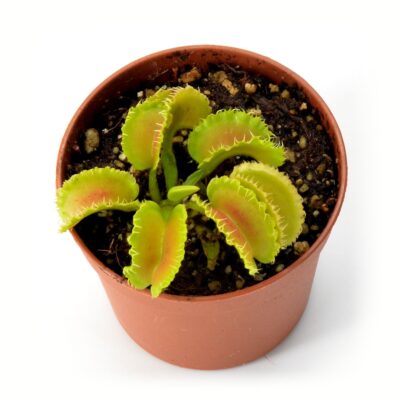-


6.00€ *Heliamphora minor, a carnivorous plant from Venezuelan Tepui, thrives in tropical highland conditions, but adapts well to most crops.
-


7.00€ *Pinguicula sp. Tolatongo: Mexican and tropical small, purplish plant with folded white-tipped lobes. Ideal for beginners. Prostrate shape.
-


0.40€ – 4.30€ *Blonde Sphagnum Peat is the substrate par excellence, used for growing our carnivorous plants, usually mixed 50/50 with perlite.
-


2.86€ – 7.92€ *Blond peat of sphagnum moss and perlite, mixed to 50%. The classic appropriate mix to make many carnivorous plant grow at their best, prepared by our staff.
-


15.00€ *Dionaea muscipula “Kim Il Sung”: Unique, aggressive form. Striking, distinctive appearance with irregular teeth and wavy forms. A must-have for fans!
-


10.00€ – 12.00€ *Dionaea muscipula ‘Alien’ is a giant prostrate plant with elongated, bean-shaped, and arched traps. One of the most notable features of this cultivar’s traps is their dentition, which vaguely resembles the teeth of a monster or an alien. The “teeth” of the traps are often fused together at the base, creating a jagged and irregular appearance.
-


12.00€ *Pinguicula laueana (Crimson Flower): Tropical carnivorous plant, dark green leaves, stunning red flowers. Great for beginners.
-


7.00€ *Drosera rotundifolia is easy to grow; it has green leaves, the trap is green but if it is exposed to full sun it turns slightly red.
-


2.75€ – 7.70€ *Agriperlite increases soil aeration for carnivorous plants. Mixed with sphagnum peat, it is an inert, expands 20 times and is microbiologically safe.
-


18.00€ *“Dionaea AR Werewolf”: upright clone with dark red color, narrow petiole, and stubby-toothed traps. Wavy and irregular. Striking yellow-orange leaf edge.
About Sundew plants
Drosera is a carnivorous plant equipped with adhesive traps and belonging, like Dionaea muscipula, to the family Droseraceae. The numerous species of Drosera are mostly found in tropical or subtropical environments such as Africa, Australia, and South America, though they can also be found in temperate environments such as Europe, Asia, and North America in much smaller numbers.
The fascinating capture mechanism has the appearance of leaves covered with numerous “tentacles,” at the top of which are sticky droplets composed of water and polysaccharides. These plants take advantage of the light reflections produced by the passage of sunlight through these droplets to attract the insects, which eventually become trapped in this thick, viscous cocktail of water and sugary substances. Other glands, called sessile glands, which are smaller and less conspicuous than the previous ones, produce digestive enzymes that “digest” the insect’s soft tissues.
Often, to maximize the benefits it can derive from its prey, Drosera slowly curls the leaves by enveloping the insect with a larger surface area of leaf blade (and thus more digestive glands); in this way, there is more production of enzymes, and consequently more nutrition. This can take the plant hours or days to do, depending on the species.
Read more in our Drosera care guide here













![Drosera rubrifolia [Hex River Mountains S.A.]](https://diflora.it/wp-content/uploads/Drosera-rubrifolia-Hex-River-Mountains-S.A-400x400.jpg)
![Drosera rubrifolia [Hex River Mountains S.A.] DSC_0157 Drosera rubrifolia [Hex River Mountains S.A.]](https://diflora.it/wp-content/uploads/Drosera-rubrifolia-Hex-River-Mountains-S.A.-DSC_0157-1-400x400.jpg)
![Drosera glabripes [Hermanus, S.A.]](https://diflora.it/wp-content/uploads/Drosera-glabripes-Hermanus-S.A.-DSC_0657-400x400.jpg)
![Drosera glabripes [Hermanus, S.A.] Drosera glabripes [Hermanus, S.A.]](https://diflora.it/wp-content/uploads/Drosera-glabripes-Hermanus-S.A.-DSC_0936-2-400x400.jpg)


![Drosera admirabilis [Roelofsberg, S.A.]](https://diflora.it/wp-content/uploads/Drosera-admirabilis-Roelofsberg-S.A-400x400.jpg)
![Drosera admirabilis [Roelofsberg, S.A.] DSC_0510 Drosera admirabilis [Roelofsberg, S.A.]](https://diflora.it/wp-content/uploads/Drosera-admirabilis-Roelofsberg-S.A.-DSC_0510-400x400.jpg)




![Drosera cistiflora "pink flower" [Gifsberg, S.A.]](https://diflora.it/wp-content/uploads/Drosera-cistiflora-pink-flower-Gifsberg-S.A-400x400.jpg)
![Drosera cistiflora “pink flower” [Gifsberg, S.A.] DSC_0059 Drosera cistiflora "pink flower" [Gifsberg, S.A.]](https://diflora.it/wp-content/uploads/Drosera-cistiflora-pink-flower-Gifsberg-S.A.-DSC_0059-400x400.jpg)
















![Drosera venusta [Storms riever, S.A.]](https://diflora.it/wp-content/uploads/Drosera-venusta-Storms-riever-S.A.-DSC_0668-400x400.jpg)
![Drosera venusta [Storms riever, S.A.] Drosera venusta [Storms riever, S.A.]](https://diflora.it/wp-content/uploads/Drosera-venusta-Storms-riever-S.A.-DSC_0933-400x400.jpg)




![Drosera collinsiae [Vryaheid, S.A.]](https://diflora.it/wp-content/uploads/Drosera-collinsiae-Vryaheid-S.A.-DSC_0650-400x400.jpg)
![Drosera collinsiae [Vryaheid, S.A.] Drosera collinsiae [Vryaheid, S.A.]](https://diflora.it/wp-content/uploads/Drosera-collinsiae-Vryaheid-S.A.-DSC_0989-400x400.jpg)


























